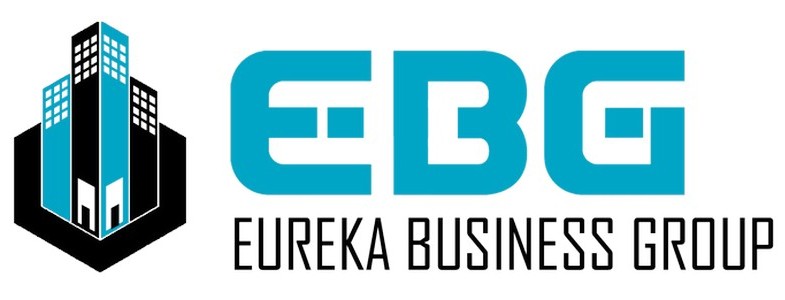- Home
- Commercial Broker Services
- Business Broker Services
- Business Owners Resources
- Crafting the Ideal Lease: Tips for Up-and-Coming Retailers
Crafting the Ideal Lease: Tips for Up-and-Coming Retailers
Starting a retail business is an exhilarating journey filled with endless possibilities. However, amidst the excitement of bringing your products to market and serving customers, there’s a crucial aspect that can significantly impact your success: your lease agreement. Crafting the ideal lease is not just about finding a space; it’s about laying the foundation for your retail venture’s prosperity. Here are some valuable tips for up-and-coming retailers to navigate the lease negotiation process and secure a favorable agreement.
Understanding Your Needs
Before diving into lease negotiations, it’s essential to have a clear understanding of your business’s needs. Consider factors such as location, foot traffic, space requirements, and budget constraints. Identifying your priorities will guide your search and enable you to evaluate potential lease agreements effectively.
When assessing locations, evaluate the surrounding area for complementary businesses, demographic alignment with your target market, and accessibility. A prime location can significantly impact your store’s visibility and foot traffic, ultimately driving sales.
Seek Legal Counsel
Lease agreements can be complex documents filled with legal jargon, making them intimidating for inexperienced entrepreneurs. Seeking legal counsel specialized in commercial leases is invaluable in navigating this process. A knowledgeable attorney can review the lease terms, negotiate on your behalf, and ensure that your interests are protected.
Don’t hesitate to ask questions and seek clarification on any clauses or terms you don’t understand. Remember, the lease agreement will dictate your rights and obligations as a tenant, so it’s crucial to get it right from the start.
Negotiate Favorable Terms
Negotiation is a critical aspect of securing an ideal lease agreement. While landlords may have standard lease templates, these terms are often negotiable. Don’t hesitate to propose amendments that align with your business’s needs and mitigate risks.
Negotiable terms may include rent escalation clauses, lease term length, maintenance responsibilities, and options for lease renewal or expansion. Aim to negotiate a fair rent that reflects market value while allowing room for your business to grow and thrive.
Consider requesting tenant improvements or allowances to customize the space to suit your specific requirements. Whether it’s installing fixtures, renovating interiors, or upgrading utilities, tenant improvements can enhance the functionality and aesthetic appeal of your store.
Factor in Hidden Costs
When evaluating lease agreements, it’s essential to consider not only the base rent but also additional expenses that may impact your bottom line. Common hidden costs include common area maintenance (CAM) fees, property taxes, insurance, utilities, and maintenance costs.
Request a breakdown of all potential expenses and carefully review the lease terms to understand your financial obligations fully. Factor these costs into your budgeting to ensure that your business remains financially viable throughout the lease term.
Clarify Lease Termination and Assignment Clauses
Unexpected circumstances may arise during the course of your lease term, necessitating early termination or assignment of the lease. It’s essential to clarify the terms and conditions governing lease termination and assignment upfront to avoid potential conflicts or liabilities down the line.
Ensure that the lease agreement outlines the process, conditions, and any associated fees or penalties for lease termination or assignment. Additionally, consider including provisions for subleasing, allowing you to lease out a portion of the space to other tenants if needed.
Review Lease Renewal Options
As your retail business grows and evolves, securing a long-term lease can provide stability and continuity. Review the lease agreement for options to renew or extend the lease term upon expiration. Having the ability to renew the lease ensures that you can continue operating from the same location without disruption.
Negotiate favorable renewal terms, including rent adjustments and lease term length, to reflect market conditions and your business’s performance. Start discussions well in advance of the lease expiration to allow ample time for negotiations and strategic planning.
Document Everything
Throughout the lease negotiation process, it’s crucial to document all communications, agreements, and amendments in writing. Keep thorough records of correspondence, lease drafts, and any changes or concessions made by the landlord or property manager.
Having a paper trail serves as a safeguard in case of disputes or misunderstandings later on. Additionally, maintaining organized records facilitates transparency and accountability, ensuring that both parties adhere to the terms of the lease agreement.
Crafting the ideal lease is a critical step in setting the stage for your retail business’s success. By understanding your needs, seeking legal counsel, negotiating favorable terms, and clarifying key provisions, you can secure a lease agreement that aligns with your business objectives and sets you up for long-term growth and prosperity.
This blog post aims to equip up-and-coming retailers with valuable insights and practical tips for navigating the lease negotiation process and securing a favorable agreement. With a comprehensive understanding of their needs, strategic negotiation tactics, and legal guidance, retailers can confidently craft the ideal lease and lay the foundation for their business’s success.



